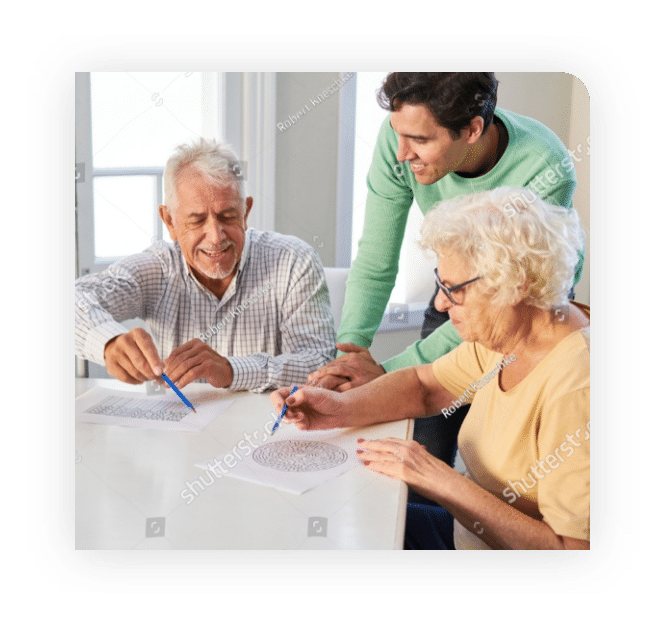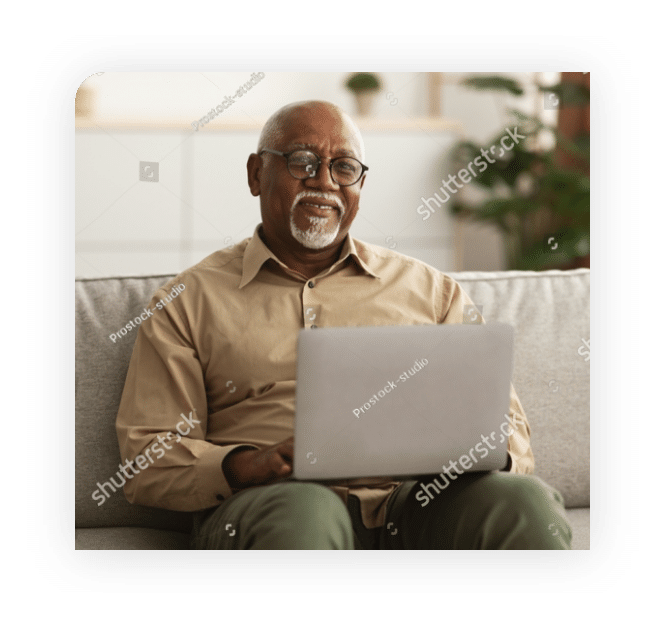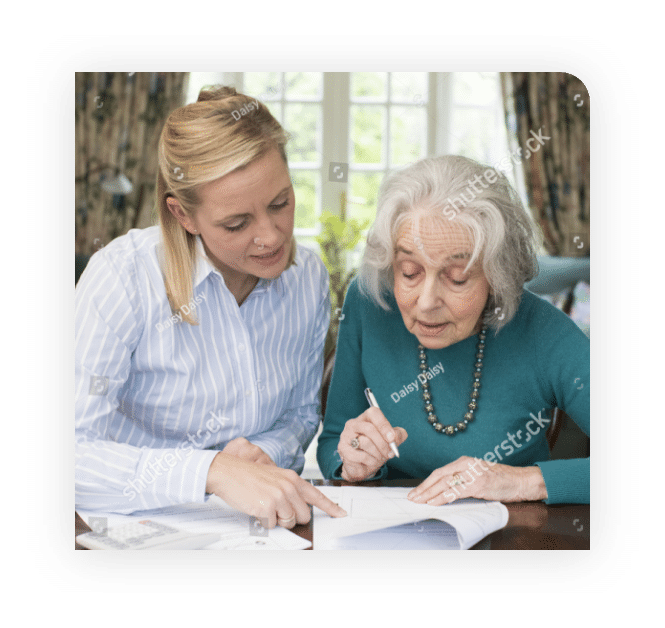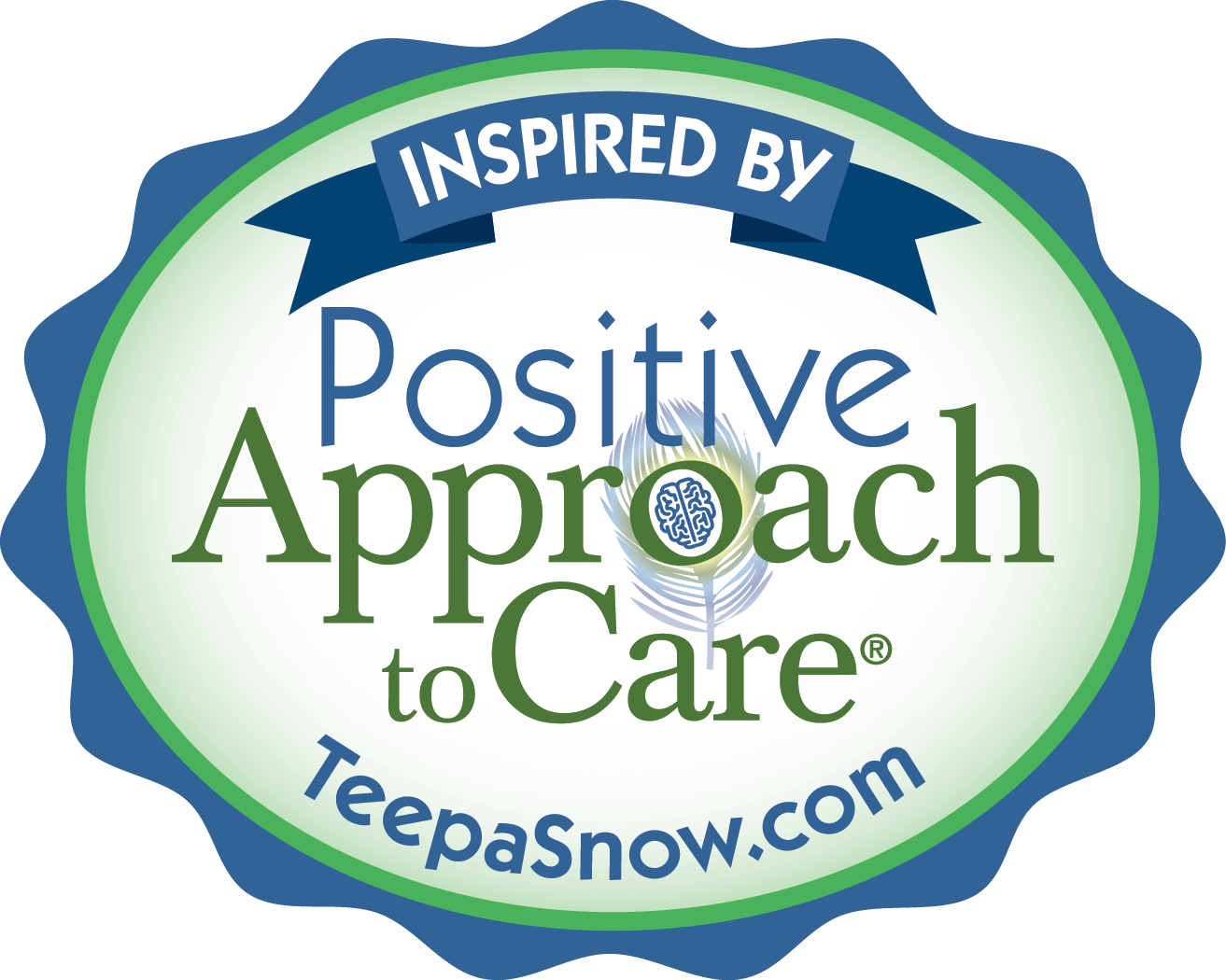01
Staff Training
Using the Positive Approach To Care to separate human beings from their disease, and compassionately treat the people behind the fog.


02
Management Training
Leadership techniques that instill job satisfaction in CNAs and HHAs to increase productivity, improve
care, and reduce turnover.
03
Family Consultations
Ways to ensure your loved one’s safety, address problematic behaviors, and enhance quality of life. Can include HIPAA-compliant app-based virtual coaching.


04
Virtual Dementia Tour
Your window into the world of dementia. An evidence-based simulation that fosters understanding.
05
DACE coaching
Dementia Aware Competency Evaluation (DACE) is a proven way for healthcare organizations to assess
competency in person-centered care.


06
Personal Care Homes, Home Care Agencies, Skilled Nursing/Memory Care/Assisted Living Facilities
Helping healthcare organizations create dementia friendly environments that allow residents to thrive, not just survive.
01
Family Consultation
Providing education and coaching on research-based practices for all stages of dementia and support them in creating individualized care plans to address their family’s unique challenges related to dementia.
Dr. Tiney works with families to ensure loved ones’ safety, to address problematic behaviors, and to enhance quality of life, while giving the family peace of mind.
She offers a popular virtual coaching option that has been extremely effective for many families in NM, ME, GA and VT. Just knowing we are a phone call away is a comfort for our clients. Typically, the initial consultation is between 60 to 90 minutes and can include family members near and far. Follow-ups are usually much shorter.
Dr. Tiney also offers Doxy.me consults for a more interactive meeting. This option also provides the opportunity for us to visualize the environment and assess the PWLD.
Some of the topics we cover in family consultations are:
- Daily Activities
- Problem Behaviors
- Safety Measures
- Dementia Education
- Home-Care Options
- Communication
- Out-Of-Home Placement (if needed)
02
Healthcare Organization Consultation
Providing education and coaching on research-based practices for all stages of dementia and support them in creating individualized care plans to address their staff’s unique challenges related to dementia.
Dr. Tiney Ray has Positive Approach to Care™ (PAC) Trainer And Consultant Certification. She has demonstrated the ability to train others in Teepa Snow’s Positive Approach to Care™
philosophy teaching awareness, knowledge, and skill development in a classroom, community, or support group setting. This experiential and interactive course provides dementia related awareness and knowledge, an in-depth look into various learning styles, and facilitation techniques that engage learners. Certification requirements include 6 hours of online training, an 8-hour classroom training, and post training follow up. Teepa’s Positive Approach™ to Care (PAC) philosophy and care partnering techniques serve as the foundation for all PAC Dementia Certifications. Each certification category includes instruction in PAC philosophy, foundational knowledge and basic care partnering skills including Positive Physical Approach™ and Hand Under Hand™.
03
Dementia Training
Providing education and coaching on research-based practices for all stages of dementia and to address staff unique challenges related to dementia. Customized and tailored to fit the needs of teams and individuals.
Positive Approach to Care™ (PAC) developed by renowned Occupational Therapist Teepa Snow has proven to be the cutting-edge methodology for optimum dementia care training in assisted livings, nursing homes and just about every other healthcare organization serving this unique population throughout GA, ME, NM, VT and more.
The six topics below comprise the heart of PAC. Based on your organization’s specific needs, you can select as little as one topic or opt for Dr. Tiney’s premier program, which covers all six topics. The latter is split into two, six-hour training days.
- Normal & Common Aging – We start the day discussing and experiencing some of the conditions that are quite common as we age. This start allows us to focus on what is not dementia before we dive into what is dementia!
- The Working & The Broken Brain – During this session caregivers will be taught the difference between dementia and Alzheimer’s. We explore the different parts of the brain and the effects of those parts being damaged by this disease. Caregivers will gain an understanding of the reasons for common behaviors that occur.
- Effective & Nurturing Communication – This session helps the caregiver develop skills in speaking and listening to the person with dementia. Caregivers are trained in best practices to empower them to understand the person with dementia and to create mutual trust.
- The Day vs. The Task – Getting ready for the day is key to having a successful day. Caregivers are given practical lessons in helping the person with dementia to maximize independence and self-sufficiency. Routine is stressed as an integral element in achieving these goals, whether the activity is new or part of everyday functions. Caregivers are trained to adopt meaningful approaches at every level of interaction with the diagnosed person. Accommodating the specific needs of the person at any given moment is emphasized, whether the activity is personal care, taking care of the home, going for a walk, or going to a family outing.
- Managing Challenges – In this component, caregivers are encouraged to share problematic experiences they have encountered on the job. These events then become the centerpiece of discussion in exploring effective ways to overcome difficulties. Few topics create as much interest as this one due to the frequent changes in personality caused by dementia and the resultant impact on behavior.
- Collective Effort – The advantages of having a team orientation is underscored for the workshop participants. Exercises are employed to demonstrate the effectiveness of a cooperative versus an independent approach of delivering care. Caregivers will learn how to derive fulfillment from their labors and aspire to a greater level of contentment in their work, resulting in increased productivity and quality of care.
04
Virtual Dementia Tour
Your window into their world of dementia. An evidence-based simulation.
The Virtual Dementia Tour is an original, ground-breaking, evidence-based, and scientifically proven method of building a greater understanding of dementia. The VDT uses patented sensory tools and instruction based on research conducted by P.K. Beville, M.S., a specialist in geriatrics and the founder of Second Wind Dreams®.
Trained facilitators guide participants outfitted with patented devices that alter their senses while they try to complete common everyday tasks and exercises. The Tour enables caregivers to experience for themselves the physical and mental challenges those with dementia face, and use the experience to provide better person-centered care. The Virtual Dementia Tour can be valuable for hospital staff, first responders, police and fire fighters, community groups or churches that may assist in dementia care, and other care partners.
05
DACE Coaching
The way to assess competency in person-centered care.
Dementia Aware Competency Evaluation (DACE®) is a proven way to measure care partners’ ability to engage positively with those living with cognitive impairments. DACE is based on 30 years of research and development. It assesses behavior of care partners, confirms success and failure in training program, and provides ongoing performance review. Dr. Tiney can provide this service for your organization. As a certified coach, she can train your observers in the DACE program.
06
Personal Care Homes, Skilled Nursing/Memory Care/Assisted Living Facilities
Helping healthcare organizations create dementia friendly environments that allow residents to thrive, not just survive.
A formally trained management team is an absolute necessity to the success of any organization. This training module orients attendees to leadership techniques that instill job satisfaction in CNAs and HHAs. In turn, this fosters increased productivity and
quality of care and reduces costly turnover.
Managers are taught to embrace change that cultivates growth and be able to inspire their team to do the same. This training helps attendees to neutralize change resistance by identifying common blocks and adopting measures to overcome these obstacles. There’s no better way to increase an organization’s bottom line than giving your management team professional training and valuable tools to maintain a full census and develop a long waiting list. Dr. Tiney can guide your management toward this goal.


